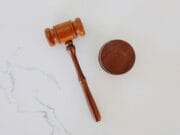Tim Cook Addresses Battery Life Concerns for iPhone Air
In an exceptional insight into Apple’s post-launch strategy, CEO Tim Cook recently tackled one of the most significant issues surrounding the newly announced iPhone Air: its battery longevity. During a visit to Corning’s glass manufacturing facility in Harrodsburg, Kentucky, Cook engaged in a conversation with CNBC’s Jim Cramer that illuminated the engineering decisions influencing the device’s remarkably slender design.
The iPhone Air, unveiled at Apple’s September 9, 2025, event, features a strikingly thin profile of merely 5.6mm, yet early discussions raise doubts about whether this streamlined shape compromises its endurance.
Cook asserted that the iPhone Air’s battery performance gains significantly from clever design innovations, notably the replacement of the physical SIM card slot with eSIM technology. This strategic decision, he elaborated, allowed engineers to optimize internal configurations, enhancing the battery layout without diminishing overall capacity.
“By going all-in on eSIM, we’ve unlocked room for advancements that keep the device running longer than you’d expect from something this thin,” Cook conveyed to Cramer, as reported by 9to5Mac.
Engineering Decisions in the Name of Minimalism
Industry analysts have long probed the equilibrium between aesthetics and functionality in Apple’s product range, and the iPhone Air marks the company’s most audacious leap toward minimalism. A recent analysis by Reuters posits that while the slender design constitutes a “design triumph” for Apple, it prompts inquiries regarding practical usability, particularly among power users who rely on sustained battery life.
In response to these apprehensions, Cook underscored Corning’s pivotal role; the factory produces the Ceramic Shield glass that safeguards the iPhone Air, facilitating a lighter build that indirectly bolsters energy efficiency.
During the same interview, Cook connected the device’s capabilities to Apple’s broader commitments to U.S. manufacturing. He revealed a staggering $600 billion investment over the next four years, with Corning’s Kentucky plant designated to produce all cover glass for iPhones and Apple Watches on a global scale.
This initiative aligns with Cook’s proclamations on X, where he extolled the expansion of American ingenuity, including a tweet from September 12, 2025, celebrating the Harrodsburg facility as a “catalyst for American innovation.”
Market Responses and Competitive Pressures
Market analysts are scrutinizing how these revelations shape consumer perceptions. A report from Reuters suggests that while the iPhone Air’s slightness may invigorate a stagnant product line, skepticism persists regarding its AI integration and battery durability in comparison to competitors such as Samsung’s foldable devices.

Nevertheless, Cook remained optimistic, drawing attention to software refinements in iOS 19 that enhance power management, potentially extending usage by up to 20% in mixed scenarios.
Beyond battery specifics, the interview encompassed the iPhone Air’s broader alignment within Apple’s ecosystem. As detailed in a Wall Street Journal article reiterated by Appleosophy, executives, including VP of Industrial Design Molly Anderson, characterized the device as a “paradigm shift” in portability, featuring a lightweight titanium framework and advanced haptics.
Yet, Cook recognized the challenges, acknowledging that early prototypes pushed limits to the extent that “it does seem like it’s going to fly away,” a quip reflecting the delicate balance Apple maintains.
Implications for Apple’s Strategic Direction
This concentration on battery innovation coincides with Apple’s ventures into health and AI functionalities, as evidenced by the recent launches of the Apple Watch Series 11 and AirPods Pro 3.
News24 reported Cook emphasizing that eSIM adoption not only enhances battery life but also streamlines global production, thereby diminishing environmental impact—echoing Apple’s 2023 pledge for 100% recycled cobalt in batteries by 2025, as noted in various historical posts from Cook.
For industry watchers, the interview signifies Apple’s confidence in refining thin designs without estranging its essential user base. As competitors escalate the development of foldable and modular devices, Apple’s strategy revolves around seamless integration, wherein battery life transcends a mere specification to become a cornerstone of user trust.
With pre-orders now underway, the true test will materialize in practical reviews, yet Cook’s reassurances position the iPhone Air as a calculated endeavor in Apple’s pursuit of elegance over redundancy.
Source link: Webpronews.com.






